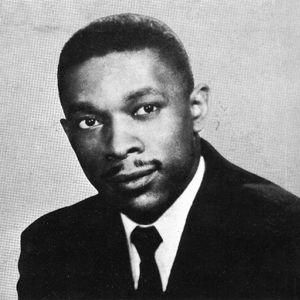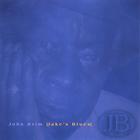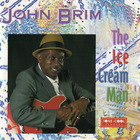John Brim

- Genre:
- Blues
- Meta styles:
- Chicago Blues, Early Acoustic Blues, Electric Blues
John Brim (April 10, 1922 ? October 1, 2003) was a Chicago blues guitarist, songwriter and blues harp player. Brim picked up his early guitar licks from the gramophone records of Tampa Red and Big Bill Broonzy, before venturing first to Indianapolis in 1941 and Chicago four years later. He met his wife Grace in 1947; fortuitously, she was a capable drummer and harmonica player who played on several of Brim's records. She was also the vocalist on a 1950 single for the Detroit based Fortune Records, that signaled the beginning of Brim's discography.
Brim picked up his early guitar licks from the gramophone records of Tampa Red and Big Bill Broonzy, before venturing first to Indianapolis in 1941 and Chicago four years later. He met his wife Grace in 1947; fortuitously, she was a capable drummer and harmonica player who played on several of Brim's records. She was also the vocalist on a 1950 single for the Detroit based Fortune Records, that signaled the beginning of Brim's discography.
Brim recorded for Random Records, J.O.B. Records, Parrot Records (the socially aware "Tough Times"), and Chess Records ("Rattlesnake," his answer to Big Mama Thornton's "Hound Dog" was pulled from the shelves by Chess for fear of a plagiarism lawsuit). All of his 1950s recordings for the Chess label were later included on the compilation LP/CD "Whose Muddy Shoes" (which also included the few recordings Elmore James made for the label; because they share this LP/CD, it has sometimes been assumed that they performed or recorded together, but this is not the case.) On some tracks Little Walter played the harmonica, whilst Jimmy Reed, Snooky Pryor, or James Dalton were also featured blowing the harp. Cut in 1953, the suggestive "Ice Cream Man" had to wait until 1969 to enjoy a very belated release. Brim's last Chess single, "I Would Hate to See You Go," was waxed in 1956 with a combo consisting of Little Walter, guitarist Robert Lockwood, Jr., bassist Willie Dixon, and drummer Fred Below.
In between touring, Brim operated dry-cleaning businesses and a record store. When the royalties from Van Halen's recording of "Ice Cream Man" came through, they enabled him to open John Brim's House of the Blues Broadway Nite Club in Chicago.
Brim continued to perform occasionally around Chicago, and was a regularly featured performer on the Chicago Blues Festival beginning in 1991.
He was tempted back into the recording studio again in 1989 to record four songs for the German Wolf label, and renewed interest in him finally led to his recording his first solo CD, Ice Cream Man, for Tone Cool Records in 1994. It received a W. C. Handy nomination as the best Traditional Blues Album of the Year.
Van Halen covered "Ice Cream Man" on their first album and David Lee Roth did the same on Diamond Dave. "Ice Cream Man" was also covered by Martin Sexton on his 2001 live double album, Live Wide Open.
Brim also appeared at the 1997 San Francisco Blues Festival.
He recorded again in 2000, 50 years after his recording debut, and continued to tour, playing in Belgium in 2001. One of his final appearances was at the 2002 Chicago Blues Festival.
Brim, who lived in Gary, Indiana remained active on the Chicago blues scene until his death, on 1 October 2003 at the age of 81. He is survived by seven daughters and two sons. One son predeceased him.
- Sort by

Jake's Blues
- Year:
- 2001
- Tracks:
- 13
- Bitrate:
- 163 kbps

The Ice Cream Man
- Year:
- 1994
- Tracks:
- 13
- Bitrate:
- 320 kbps
 J.B. Lenoir
J.B. Lenoir  Jimmy Reed
Jimmy Reed  Howlin' Wolf
Howlin' Wolf  J.B. Hutto
J.B. Hutto  Little Walter
Little Walter  Muddy Waters
Muddy Waters  Otis Spann
Otis Spann  Snooky Pryor
Snooky Pryor  Sonny Boy Williamson II
Sonny Boy Williamson II  Willie Dixon
Willie Dixon  B.B. King
B.B. King  Eddie Taylor
Eddie Taylor  LeRoy Foster
LeRoy Foster  Sunnyland Slim
Sunnyland Slim